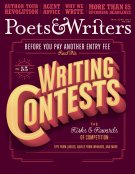In the early twentieth century, a tide of regionalist publications began to flow into American literary circles, beginning with the founding in 1915 of John T. Frederick’s the Midland. The journal, a “modest attempt to encourage the making of literature in the Middle West,” was soon accompanied by titles such as the Frontier, out of Montana, and Texas’s Southwest Review (smu.edu/southwestreview), still published today at Southern Methodist University in Dallas. Edward J. O’Brien, who created the Best American Short Stories series in 1915, called these magazines “the most significant expression of American life which we possess.” Despite the increased connectivity of the past hundred years, region and location still play a significant role in telling the diverse stories of an expansive country—and expanding world—and the contemporary literary landscape is yielding its own crop of journals with a place-based focus.
Billing itself as “the Southern Magazine of Good Writing,” twenty-year-old quarterly Oxford American (www.oxfordamerican.org) enjoys the charming history of having been established as a result of California native Marc Smirnoff’s car breaking down in Oxford, Mississippi. Now published by the University of Central Arkansas, Oxford American’s 2012 Best of the South Issue hits newsstands later this month with a tribute to the late Tennessee novelist William Gay; fiction by Kentucky’s Wendell Berry; and “odes” to Southern culture. Oxford American considers mailed submissions of poetry, fiction, and nonfiction from or about the South, and currently seeks work for issues on New South journalism and Southern music.
Founded last year in Ann Arbor, Michigan, Midwestern Gothic (midwestgothic.com) aims to catalogue “the oeuvre of an often-overlooked region of the United States ripe with its own mythologies and tall tales.” The quarterly digital and print magazine is accepting submissions, via Submittable, of poetry and fiction inspired by or about the Midwest through mid-May.
Eight-year-old Los Angeles Review (redhen.org/losangelesreview), established and edited by Red Hen Press managing editor Kate Gale, dubs itself the voice of its home city, which “roils at the center of the cauldron of divergent literature emerging from the West Coast.” Each semiannual issue is dedicated to a writer in the region—the Spring 2012 edition includes a special feature on Los Angeles novelist John Rechy—but given the plethora of cultures flourishing within the city, the magazine’s vision naturally extends beyond Southern California. Submissions are accepted from all over beginning August 1, via the journal’s submission manager. The same region is also targeted by San Francisco–based semiannual ZYZZYVA (www.zyzzyva.org), launched in 1985, which publishes only West Coast writers. The Spring 2012 issue, the third edited by Laura Cogan, who succeeded founding editor Howard Junker last year, is the magazine’s biggest yet, with fiction and poetry from Los Angeles poet Wanda Coleman and Bay Area writers W. S. Di Piero and D. A. Powell. ZYZZYVA accepts submissions of poetry, fiction, and creative nonfiction year-round by postal mail only.
Hawk & Handsaw (www.hawkandhandsaw.org), published annually at Unity College in rural Maine, has reflected the values of its ecologically concerned community since 2008. Editor in chief Kathryn Miles hopes a recent website redesign will generate a virtual “creative sustainability salon” for readers and writers beyond the region. The latest issue features poems by Hannah Fries, poetry editor of another environmentally focused magazine, the bimonthly Orion (www.orionmagazine.org). Submissions to Hawk & Handsaw are welcome August 1 to October 1, preferably sent via e-mail to hawkandhandsaw@unity.edu.
Leaping beyond American borders, the Common (www.thecommononline.org), published biannually at Amherst College in western Massachusetts, promotes writing concerned with place “both real and imagined.” Issue 3, released in April, includes a photo-and-text essay by American travel writer Rolf Potts and work by poets from France, India, and Peru. The Common accepts electronic submissions throughout the year via the submission manager Tell It Slant or postal mail.
Travis Kurowski is completing a book on the literary magazine, due out from Atticus Books in 2013. His website is traviskurowski.com.








